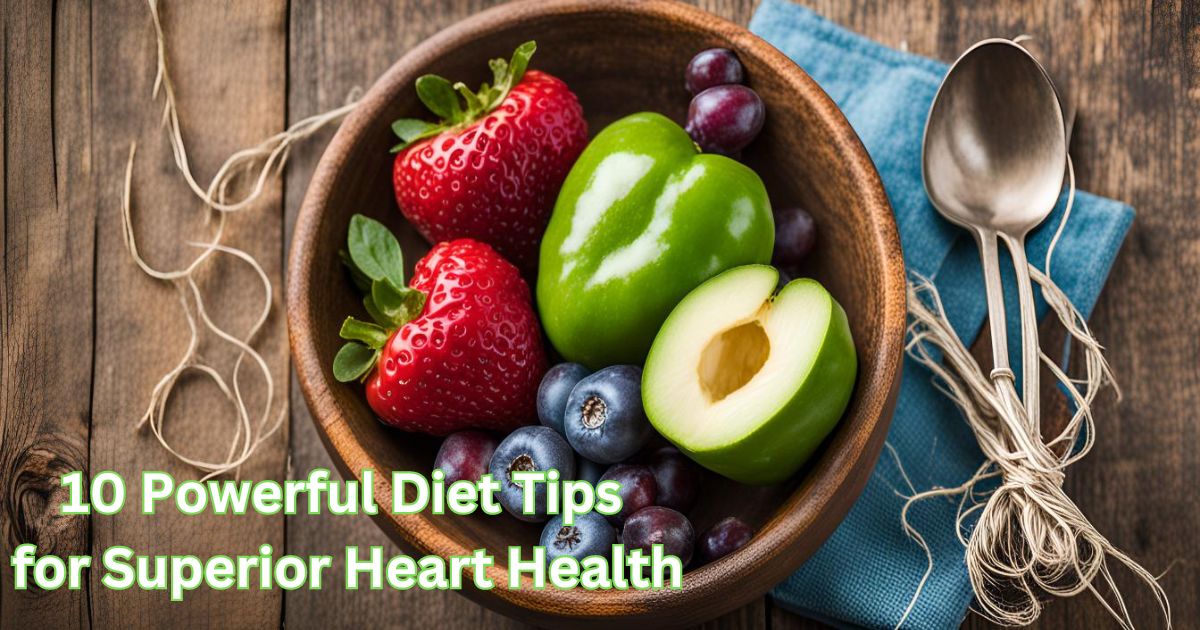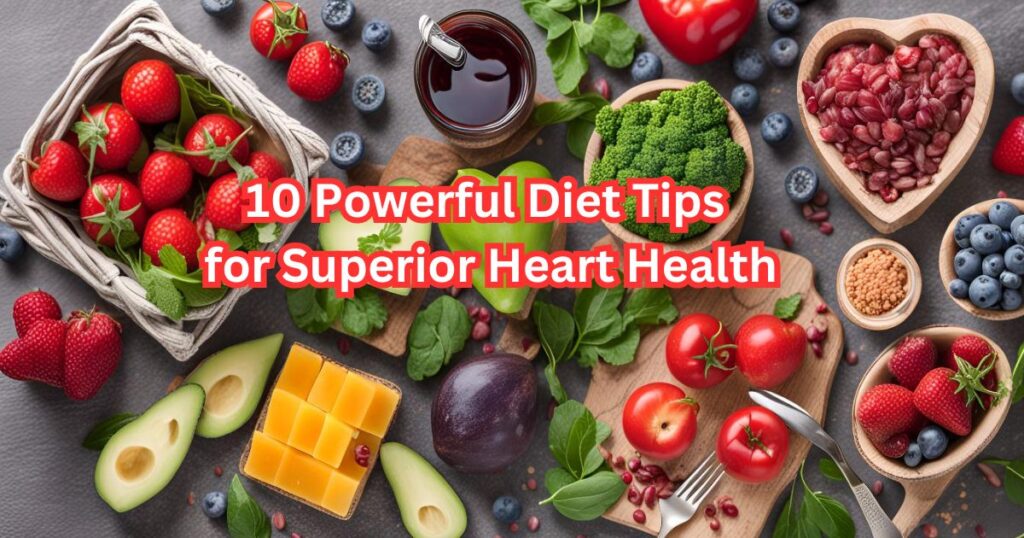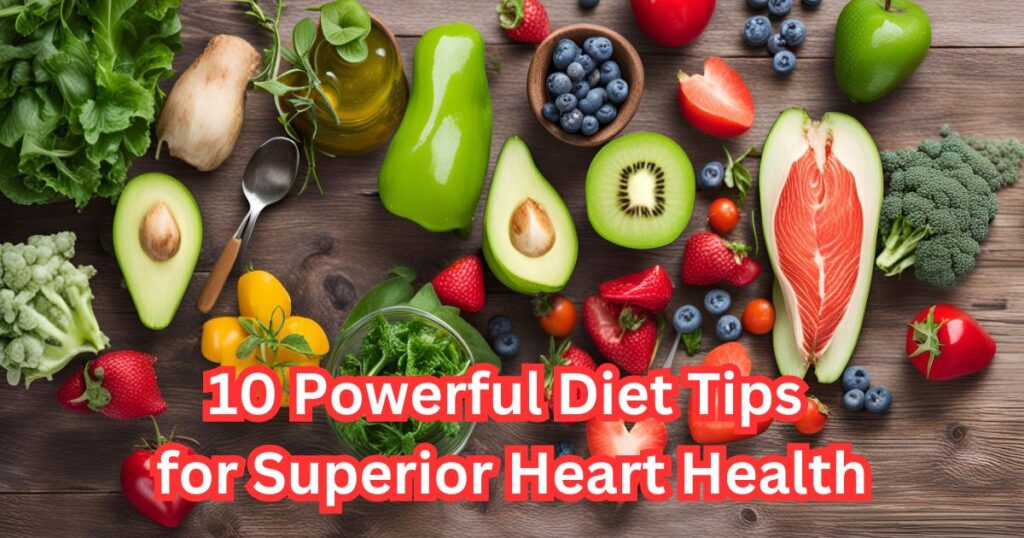10 Powerful Diet Tips for Superior Heart Health: Eating a nutritious diet in the summer is very important for heart health, as rising temperatures can put strain on the cardiovascular system. It is important to support your heart with nutritious foods. Dietary changes can provide you with important nutrients, maintain hydration, and control blood pressure and cholesterol levels. Eating heart-healthy foods can reduce inflammation, improve your lipid profile, and improve overall heart function. Keep reading as we present a list of summer foods you should include in your diet to improve your heart health.
10 Essential Diet Tips to Follow This Summer for Optimal Cardiovascular Health:
1. Fortify yourself with fruits and vegetables
Fruits and vegetables are rich in antioxidants, vitamins, minerals, and fiber, which help reduce inflammation, lower blood pressure, and improve cholesterol levels. Try to eat at least 5–7 servings per day. Add a rainbow of colors to your diet to provide a full spectrum of nutrients, such as vibrant berries, leafy greens, and crunchy bell peppers.
2. Eat whole grains
Whole grains are rich in fiber, which helps lower LDL (bad) cholesterol and significantly reduce your risk of heart disease. Replace refined grains with healthier options such as oats, brown rice, quinoa, and whole grain bread. Oatmeal Start your day with a bowl of oatmeal or eat nutritious whole grain pasta for lunch.
3. Add healthy fats
Healthy fats, especially omega-3 fatty acids, can help lower triglyceride levels, reduce inflammation, and improve overall heart function. Eat fatty fish, such as salmon, mackerel, and sardines, at least twice a week. Use olive oil for cooking and dressing, and snack on nuts and seeds.
3. Fuel up on healthy fats
Healthy fats, especially omega-3 fatty acids, are important for lowering triglyceride levels, reducing inflammation, and improving overall heart function. Eat fatty fish, such as salmon, mackerel, and sardines, at least twice a week. Choose olive oil for cooking and dressing, and eat nuts and seeds for snacks.
4. Reduce your intake of saturated and trans fats.
Reducing your intake of saturated and trans fats is critical to lowering LDL cholesterol and reducing your risk of heart disease. Choose lean meats, remove the skin from poultry, and avoid processed foods that contain trans fats. Choose cooking methods such as grilling, baking, or steaming over frying.
5. Reduce your sodium intake.
Excess sodium can increase blood pressure, which is a major risk factor for heart disease. Avoid processed and packaged foods, season your food with herbs and spices instead of salt, and choose low-sodium foods when available. Aim to consume less than 2,300 milligrams of sodium per day.
6. Monitor your fluid levels
Adequate hydration is of utmost importance to maintain normal heart function and blood pressure levels. Try to drink at least 8 glasses of water per day, increasing your intake if you are active or suffer from heat. Add hydrating foods to your diet, such as fresh cucumbers and watermelon.
7. Enjoy Fiber-rich Foods
Fiber is essential for lowering cholesterol and improving overall heart health. Include plenty of fruits, vegetables, legumes and whole grains in your diet. Aim for at least 25–30 grams of fiber per day. Add beans to salads, enjoy whole fruits, and choose high-fiber snacks such as nuts and seeds.
8. Avoid added sugar.
Reducing the amount of added sugar can help prevent weight gain and reduce the risk of heart disease. Avoid sugary drinks, candy, and sweets. Check labels for hidden sugars on packaged foods, and choose natural sweeteners such as honey or fruit if necessary.
9. Eat Small, Frequent Meals
Consuming smaller, more frequent meals can help maintain energy levels and prevent overeating, which can strain the heart. Ensure each meal is balanced with protein, healthy fats, and complex carbohydrates to keep you satisfied and energized throughout the day.
10. Add vegetable protein
Plant-based proteins such as beans, lentils, tofu, and tempeh are low in saturated fat and high in fiber, making them an exceptional choice for heart health. Try incorporating meatless meals into your weekly routine to reduce the amount of animal fat.
By following these important nutrition tips, you can improve your cardiovascular health and enjoy a bright, energetic summer.
Conclusion
Summer is the perfect time to improve your diet and your heart health. Eating more fruits, vegetables, whole grains, and healthy fats while reducing bad fats, sodium, and added sugars can have a profound effect. Remember to stay hydrated and choose heart-healthy foods to keep your cardiovascular system strong during the warmer months.
Denial of Responsibility
This content, including advice, provides general information only. This is not a substitute for professional medical advice. Always consult a specialist or doctor for more information. Foods Effects is not responsible for this information.
By incorporating these helpful nutrition tips into your summer routine, you can ensure that your heart stays healthy and strong. Welcome the season with optimal cardiovascular health!


